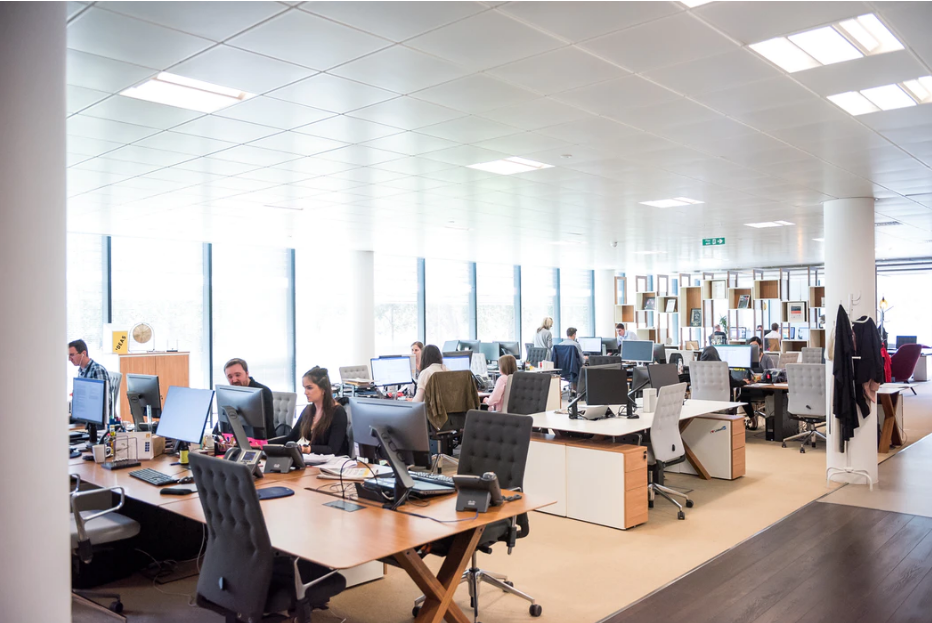

Cloud computing has opened the doors to new and exciting technologies for businesses to use. A lot of this new technology revolved around the ongoing delivery service model.
Software as a Service (SaaS) and infrastructure as a service (IaaS) are common options these days. But one of the recent and more valuable services today is Desktop as a Service or DaaS.
Though relatively new, the global DaaS market was valued at $3.5 billion in 2018, with forecasts estimating a compound annual growth rate of 18% through 2029. Clearly, businesses are finding value in the service. As the COVID-19 pandemic still demands secure and effective work-from-home solutions, DaaS will continue to increase in popularity.
What is Desktop as a Service and why is it so popular? Let’s take a look.
What is Desktop as a Service (DaaS)?
DaaS is a type of cloud computing service that allows employees to access a remote desktop workstation from any location with an internet connection.
It’s a cloud based workspace that any team member can access, whether they’re on a laptop, tablet or mobile device, PC or Macintosh. All that’s needed in most cases is a web browser like Chrome or Internet Explorer. The desktop itself is hosted by the cloud provider, freeing the user of the complexity and expense of managing hardware, particularly physical servers and networks that require high security.

How Does DaaS Work?
DaaS is based on virtual desktop infrastructure (VDI), is a cloud service in which the service provider hosts multiple user operating systems on in-house servers and provides software packages, security and tools to paying customers, typically on a monthly or annual basis.
Since these virtual desktop operating systems (typically Windows), are managed entirely in the cloud, they offer multiple benefits over physical desktops including flexibility, data security, and lower costs (more on that below). With DaaS, your IT service provider manages Operating System and software application installation and configuration, and maintenance, critical security patches, plus updates and upgrades.
Virtual Desktop systems are integrated tightly with the business’ network and server resources. From the user’s point of view, the Virtual Desktop is just another computer on the network – but that “computer” can be accessed anywhere in the world at any time.
|
Harness the power of DaaS for your business with help from Power Consulting’s trustworthy IT experts. |
Why Use DaaS?
With a market size of $3.5 billion, it’s obvious that DaaS has taken hold as a viable alternative to physical computers for many businesses. But why do so many companies use DaaS? Let’s review some of the benefits of DaaS for business owners.
Lower Costs
One benefit of remote desktops is cost reduction. Companies can use DaaS systems for less than the cost of hosting physical computers in a physical office. The expense of new computer systems is transferred to the business’ cloud budget. Because it is centrally managed, and much less dependent on hardware, Virtual Desktops are more cost-effective to maintain and support. There is never a need for a tech to visit a physical computer or office.
The DaaS subscription model is billed on a monthly or annual basis, giving business owners peace of mind about their operational costs. There are no surprises, maintenance fees, or hidden expenses – such as broken or old computers – to worry about.
Note that software licenses for DaaS cost the same as licenses for physical computers, but cost savings may be realized with group licensing packages.
Security
One of the biggest benefits of DaaS is enhanced cybersecurity, particularly for companies with bring-your-own-device (BYOD) policies, or companies with many employees working from home. With DaaS, employees are not tempted and not able to store sensitive company information directly on their devices.
If employees lose their phones, or their laptop gets stolen, company information may be at risk. But with DaaS, the physical device is only the medium for the data, not its location.
All sensitive information is stored on the cloud server, ensuring that company data is safe at all times, even if a device is lost or stolen.
Plus, all information housed on the cloud server itself is secured by the Data Center’s security architecture. This offers a higher level of protection than most businesses can provide in-house.
| Interested in learning more? Check out these blogs: |
Flexibility
DaaS plans offer flexibility for companies with variable workforces. When temporary or contract workers need to be brought on staff, DaaS allows for rapid user setup, and no lead time is required to procure computer systems for the new employee.
DaaS offers the ultimate in flexibility for remote workers. Whether they are in the same town, or on a different continent, on any system whether PC or Macintosh – as long as they have a web browser, they are able to work safely and effectively and require little to no support.
Easy to Scale
Desktop virtualization plans often come with built-in scalability, letting companies add or remove services as needed. This makes it far easier to bring in new applications and features as needed, compared to the hassle of doing so in your own in-house data center.
This simple feature offers great potential for adding members to your team, opening new offices, or expanding out your service offerings to align with business growth.
What is DaaS? It’s the Future of Remote Work
DaaS is the easiest way for companies to securely facilitate remote work for their teams without needing to deploy any costly IT architecture.
It’s a vital collaboration tool that nearly any business can use to streamline IT management costs, boost workforce flexibility, and secure their data in a single, cloud-based server.
If you’re curious about how the benefits of DaaS may apply to your company, contact Power Consulting today for a DaaS consultation. Our team of IT experts would be glad to walk you through the details.

